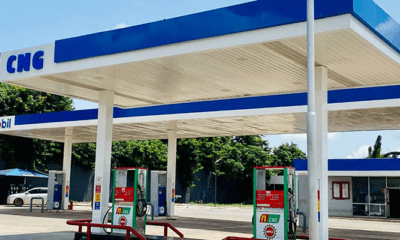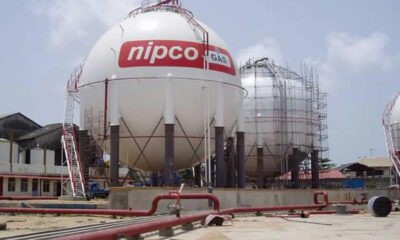Energy
How in-coming govt can tackle fuel subsidy burden – NIPCO
President-elect Bola Tinubu has declared plans to end fuel subsidy. CNG pioneer, NIPCO, has these pieces of advice on how this could be a win-win for both the government and the people
Deepened utilization of indigenous natural gas will certainly help the federal government in reducing subsidy burden and reduced importation of other fossil fuels, there by saving towards exchequer.
Mr. Suresh Kumar, Managing Director,
NIPCO Plc, the CNG pioneer in Nigeria, said this after a tour of the company’s facilities in Apapa by journalists on Thursday.
President-elect Bola Tinubu has declared plans to end subsidy, CNG pioneer, NIPCO, has these pieces of advise on the burden could be lessened.
Fielding questions from newsmen, Kumar, who addressed journalists with MD NIPCO Gas, Nagendra Verma, maintained that his company has deepened gas investment and market leadership in the country.
“With the intentions of the federal government to do away with fuel subsidy, natural gas by CNG and AutoCNG are bound to be a preferred “fuel of choice” due to safety, environment, economic and abundant availability reasons in Nigeria,” he said.
NIPCO Gas has, according to Kumar. “total belief and expectation in the federal government’s declaration of 2020-2030 as a “Decade of Gas” with an aim to target gas-powered economy of Nigeria by year 2030 bundled with Nigeria Gas Expansion Program (NGEP) will certainly improve the utilization of
Indigenous fuel viz. natural gas and play a major role in improving Nigeria’s economy.”
He continued; “NIPCO Gas feels that increases monetisation of indigenous natural gas will surely contribute heavily to the betterment of economic situation and employment in Nigeria.”
The NIPCO boss added that the number of vehicles running on Compressed Natural Gas (CNG) In Nigera has Hit 7,000.
“We started our CNG operations in 2009 in Benin City by providing natural gas to Industries by way of PNG & CNG to automobiles by way of AutoGas (AutoCNG). NIPCO Gas is the pioneer company in CNG distribution in Nigeria.
“Presently, Nipco Gas operates 12 CNG stations in Edo, Kogi, Delta, Ogun state, and Abuja. Four CNG stations are under various stages of construction and approval in Oyo, Lagos, Akwa Ibom state, and Abuja FCT.
These CNG stations cater for Auto Gas requirement of vehicles, providing a cleaner, safer, economical, proven, and indigenous fuel.
“Nipco Gas presently fuels 7000 vehicles with AutoCNG. Nipco Gas has 4 AutoCNG conversion workshops in
Ogun state and Abuja FCT to convert PMS vehicles on AutoCNG. More and more fleet operate converting their fleet on AutoCNG due to safety, availability, and economic reasons.
Corroborating Kumar’s view, Verma added; “NIPCO Gas operates approximately. 40 kilometres of pipeline network in Benin city and approximately 50 km pipeline network on Lagos lbadan expressway and energies industries for their power requirements by way of providing piped natural gas (PNG).
“PNG is most economical, safe, and convenient to use.
NIPCO Gas, in partnership with NNPC Gas Marketing Limited (NGML), is presently constructing approximately 80 kilometres of pipeline in phased manner from Sagamu to lbadan which will cater for industries’ power and fuel requirements.”
Pipeline construction work, he continued. “is progressing in full swing presently. The first phase of pipeline construction is expected to be completed by the end of 2023.
“NIPCO Gas, in partnership with NGML, is also constructing gas distribution infrastructure in Lekki Zone. Pipeline construction within Lekki Free Zone Development Company is on.
“The pipeline and city gate station are under construction. Nipco Gas has planned to commission the gas infrastructure and start supplying natural gas to customers in Q2, 2024.”
Energy
Seplat to deliver 13 new oil wells in 2024
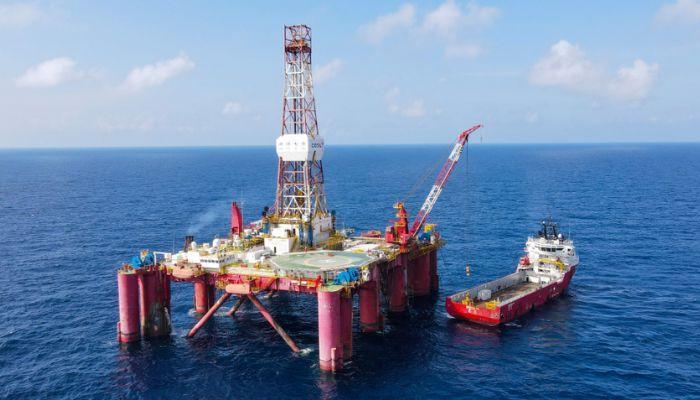

Seplat Energy Plc has announced its drilling program for 2024 with plans to deliver 13 new oil and gas wells across its operated and non-operated assets.
The company disclosed this in its unaudited results for the first quarter ending March 31, 2024.
“The breakdown of the new wells includes 11 dedicated to oil production and two focused on gas production,” it said.
The company stated that its drilling programme delivered one well from the 2024 drilling programme, Ovhor21, in the first quarter of 2024.
It added that it completed two wells; Okporhuru-9, and Sapele-37, which were spudded towards the end of 2023.
“Sapele-37 and Okporhuru-9 had multiple targets in their respective initial plans, and each recorded notable positive results. Each well had secondary exploration targets in previously untested deeper stratigraphy in OML 41.
“We are pleased to announce the discovery of hydrocarbons, predominantly gas, in both wells. Okporhuru -9 well discovered multiple hydrocarbon-bearing intervals in deeper formations,” the company stated.
“The Sapele-37 well, previously known as Sapele-N, discovered hydrocarbons in deeper reservoirs. Additionally, it has confirmed the extension of the Sapele field to the north. Initial findings indicate that these deeper reservoirs could be commercially viable,” the energy company announced.
It added that further technical analysis is currently being conducted to evaluate the potential of Okporhuru, Sapele, and the broader OML41 area at greater depths.
“For the remainder of 2024, we plan to deliver the remaining 12 wells on the 2024 drilling plan. Three wells: Ovhor-22, Sapele-38, and OBEN KIKB-02, are expected to be completed during the second quarter. We expect these wells to support production volumes later in the year,” the company maintained.
According to the Chief Executive Officer, at Seplat Energy, Roger Brown, an executive order has been signed and officially implemented as law, which could significantly enhance Seplat’s contracting procedures and bring about improved efficiency that will contribute to cost reductions.
Seplat Energy Plc has also announced N1,309.88 per $1 as the exchange rate for determining the final and special dividend payout to eligible shareholders who choose to receive their dividends in naira.
Brown said the company has discovered hydrocarbons in deeper reservoirs than had previously been tested at Sapele-37 and Okhorpuru-9.
Energy
$1.09 billion paid by Shell Nigeria in taxes, royalties in 2023
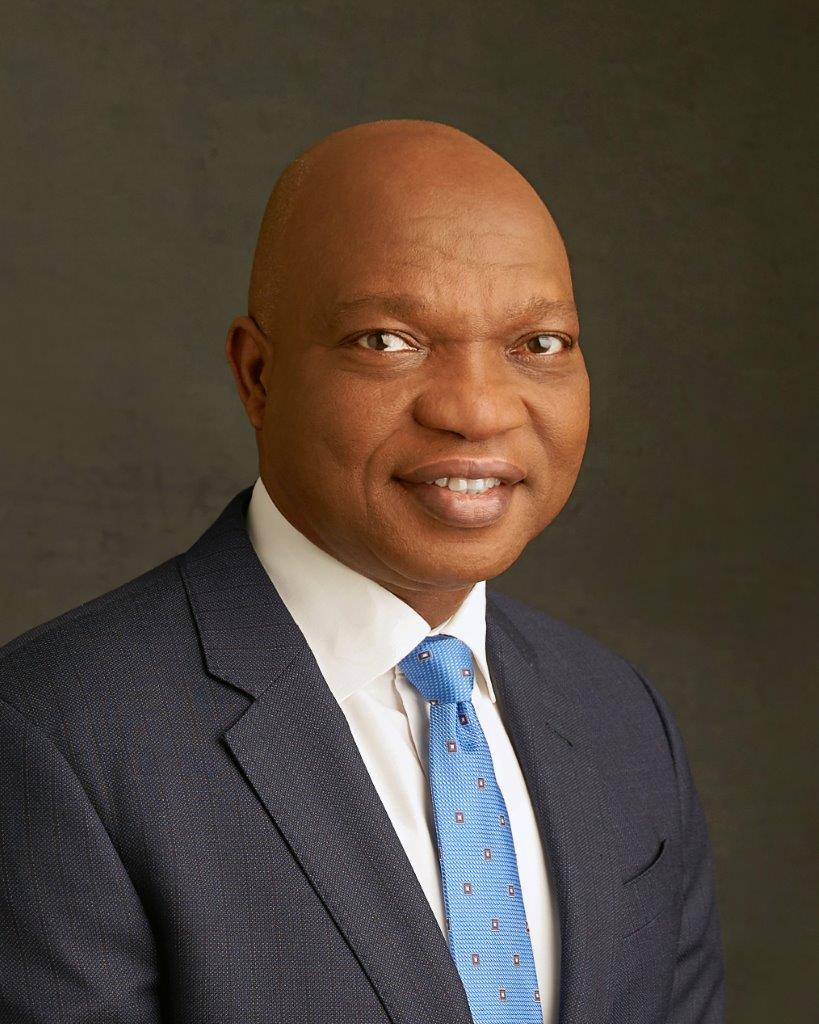

Shell exclusively paid a total of $1.09 billion in corporate taxes and royalties to the Government of Nigeria last year through the operations of The Shell Petroleum Development Company of Nigeria Ltd (SPDC) and Shell Nigeria Exploration and Production Company of Nigeria Ltd (SNEPCo.)
The figures, announced in the just published 2023 Shell Briefing Notes, show that SPDC paid $442 million, while SNEPCo remitted $649 million. Similar payments made by the two companies in 2022 amounted to $1.36 billion.
“These payments are Shell exclusive and do not include those made by our partners,” said SPDC Managing Director and Country Chair, Shell Companies in Nigeria, Osagie Okunbor. “Shell Companies in Nigeria will continue to contribute to the country’s economic growth through the revenue we generate and the employment opportunities we create by supporting the development of local businesses.”
Shell has invested in Nigeria for more than 60 years. The Briefing Notes report on the progress of the businesses of Shell Companies in Nigeria – SPDC, SNEPCo, Shell Nigeria Gas and Daystar Power for 2023.
The reports show that the companies continued to power progress, working closely with stakeholders and communities to promote socio-economic development and providing cost-effective and cleaner energy solutions.
Mr. Okunbor added: “It is important to emphasise that Shell is not leaving Nigeria and will remain a major partner of the country’s energy sector through its deep-water and integrated gas businesses. Our collective focus remains on delivery of safe operations and care for our people.”
Energy
Divestments: Shell assets estimated at 4.96 billion barrels oil reserve – NUPRC
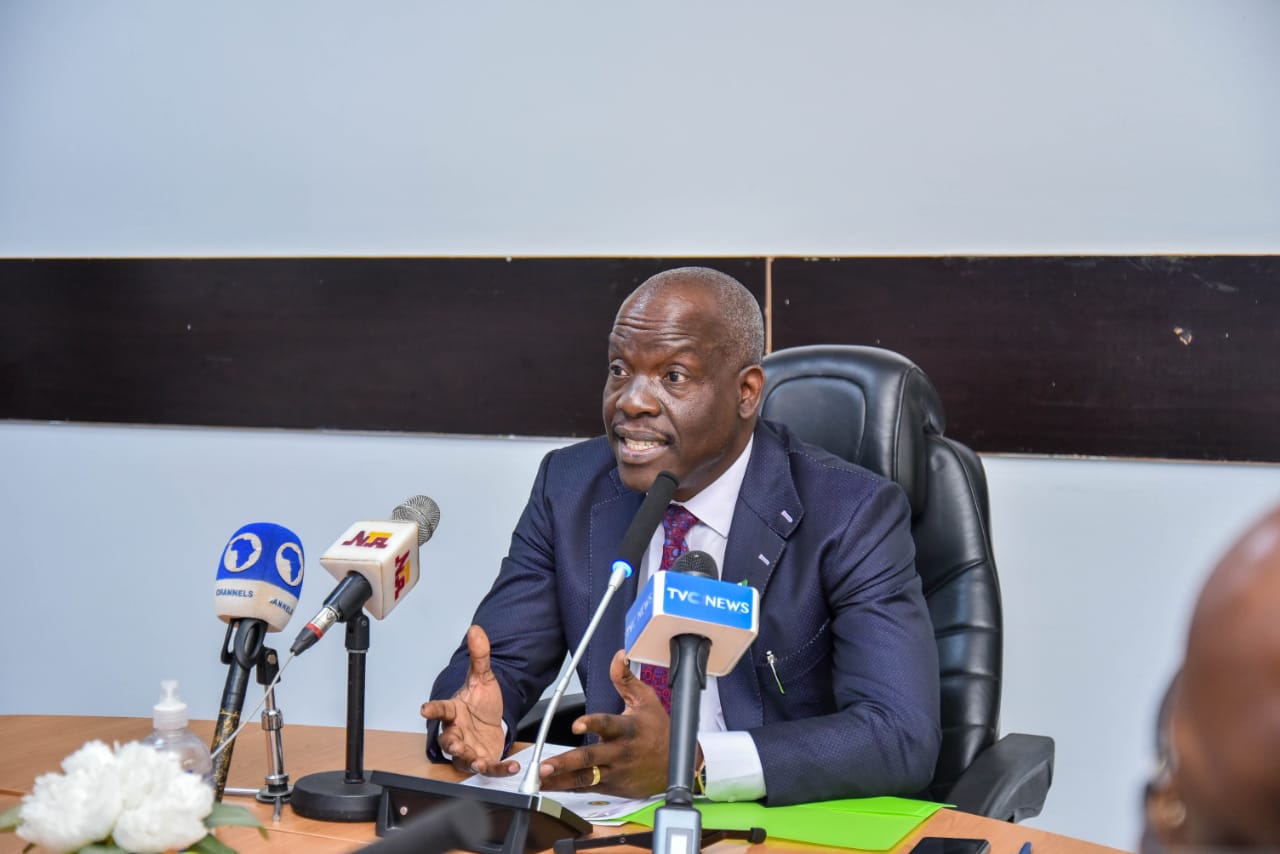

The Nigerian Upstream Petroleum Regulatory Commission (NUPRC) says the Shell Petroleum Development Company of Nigeria Limited (SPDC) assets being considered for divestments have an estimated reserve of 4.96 billion barrels of oil.
The Commission Chief Executive of NUPRC, Mr Gbenga Komolafe disclosed this on Monday in Abuja at the NUPRC-SPDC due diligence divestment workshop.
Komolafe said at the workshop that the assets have reserves of 1.77 billion barrels of condensate, 28.16 trillion cubic feet of associated gas and 28.11 trillion cubic feet of non-associated gas.
The workshop was aimed at discussing the proposed divestment of the participating interests held by SPDC in the SPDC JV Assets, through a sale by the shareholders of all the issued shares of SPDC to Renaissance Africa Energy Company Limited.
The SPDC JV assets are currently operated by the SPDC on behalf of its Joint Venture (JV) partners namely Nigeria National Petroleum Company Limited (NNPC Ltd.), Total Upstream Nigeria Limited, Nigeria Agip Oil Company and SPDC.
“To date, the assets have achieved a cumulative production of 5.35 billion barrels of crude oil, 165. 57 million barrels of condensate, 9.51 trillion cubic feet of associated gas and 3.75 trillion cubic feet of non-associated gas.
“These contribute to the achievement of Nigeria’s crude and condensate output.
“The assets being considered have an estimated total reserve of 4.96 billion barrels of oil, 1.77 billion barrels of condensate, 28.16 trillion cubic feet of associated gas and 28.11 trillion cubic feet of non-associated gas.
“This makes a significant contribution to the nation’s hydrocarbon resources.
“Additionally, these assets hold P3 reserves estimated at 2.85 billion barrels of oil, 850.85 million barrels of condensate, 11.3 trillion cubic feet of associated gas and 12.26 trillion cubic feet of Non-Associated Gas,” he said.
Komolafe said the due diligence meeting would enable the commission to identify a successor who would not only possess the requisite financial resources but also demonstrate the technical expertise to responsibly manage these assets throughout their lifecycle.
He further said that the commission would ensure that the inherent environmental and end-of-life liabilities such as decommissioning liabilities were accurately identified and assigned to the party best equipped to bear the associated risks.
This, he said would necessitate a comprehensive understanding of regulatory requirements, industry best practices and the unique challenges inherent in oil and gas operations.
“To this end, we have implemented robust measures to streamline regulatory procedures and eliminate unnecessary barriers to investment.
“Let me emphasise that the NUPRC wholeheartedly welcomes investment in the Nigerian upstream petroleum sector.
“We recognise the critical role investment plays in driving innovation, creating employment opportunities and ultimately fueling economic prosperity for our nation and its people.
“Therefore, we are always eager to welcome local and international investors who choose to invest in the Nigerian upstream petroleum sector,” he said.
He added that the commission was fully committed to facilitating and supporting investment initiatives that align with national development goals.
Komolafe urged SPDC and Renaissance to engage proactively, adhere to regulatory requirements and work collaboratively with the NUPRC to ensure the successful conclusion of the Shell Divestment.
“As regulators, we will ensure that this evaluation is conducted with precision and impartiality, with a focus on transparency and accountability,” he said.
He lauded President Bola Tinubu for his support and commitment towards ensuring a purposeful leadership that would attract investment and development of the country’s oil and gas sector.
The News Agency of Nigeria (NAN) reports that the NUPRC has developed a Divestment Framework consisting of seven cardinal pillars to guide the assessment of applications for Ministerial consent to the SPDC divestments and other similar divestments
-
capital market2 years ago
Rt.briscoe, FBNH, Others halts negative performance of stock market
-
Finance3 months ago
Court orders Sen. Victor Umeh to repay N136m bank debt to AMCON
-



 Abuja Update2 months ago
Abuja Update2 months agoUNDP, FG partnership needed to achieve inclusion, equity- Minister
-
Abuja Update1 month ago
Banks drive stock market performance with N147bn gain
-



 Health3 weeks ago
Health3 weeks agoCapacity training will reduce migration of health workers- NPHCDA
-



 Business2 weeks ago
Business2 weeks agoTingo Group unveils Tingo Electric, Tingo Cola drink at Lagos launch
-



 Infotech1 month ago
Infotech1 month agoWorld Backup Day: NITDA urges Nigerians to ensure backup of data
-
News4 months ago
Oil thieves sponsoring malicious media campaign against Navy – Spokesman

